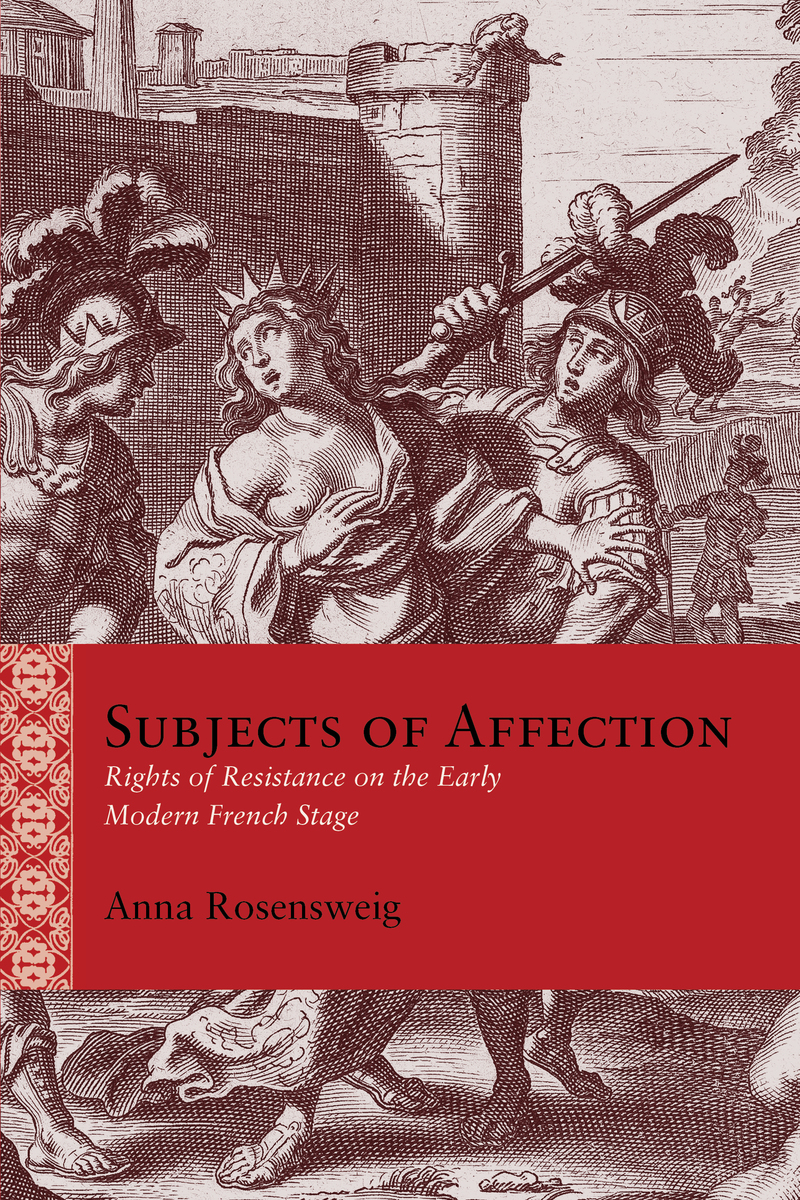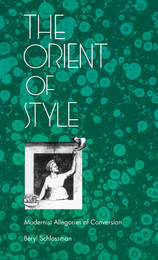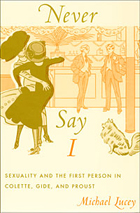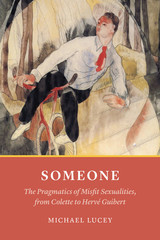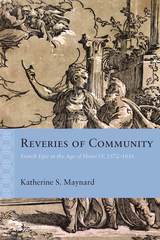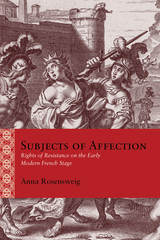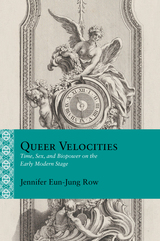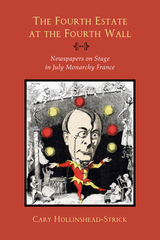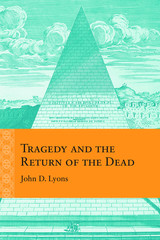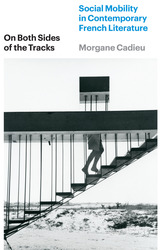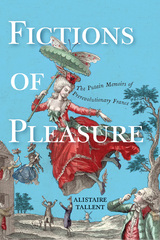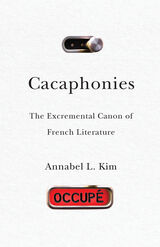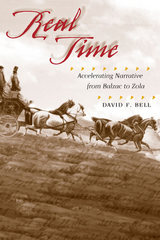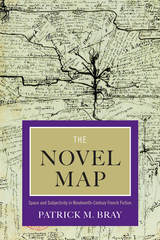Subjects of Affection: Rights of Resistance on the Early Modern French Stage
Northwestern University Press, 2021
Paper: 978-0-8101-4445-3 | eISBN: 978-0-8101-4447-7 | Cloth: 978-0-8101-4446-0
Library of Congress Classification PQ528.R67 2021
Dewey Decimal Classification 842.409
Paper: 978-0-8101-4445-3 | eISBN: 978-0-8101-4447-7 | Cloth: 978-0-8101-4446-0
Library of Congress Classification PQ528.R67 2021
Dewey Decimal Classification 842.409
ABOUT THIS BOOK | AUTHOR BIOGRAPHY | REVIEWS | TOC | REQUEST ACCESSIBLE FILE
ABOUT THIS BOOK
Subjects of Affection offers an alternative to the modern model of human rights in an unexpected archive: the monarchist tragedies that shaped Louis XIV’s absolutist France. Pairing political theory with performance studies, Anna Rosensweig argues that the right of resistance, largely thought to have disappeared from French political thought in the aftermath of the religious wars of the sixteenth century, actually endured throughout the seventeenth century as a conceptual framework embedded and embodied in tragic drama.
Contemporary scholars have critiqued the modern rights paradigm for its failure to acknowledge the ways in which individual rights depend upon state protection and national belonging. Through a reappraisal of early modern French tragedy, Rosensweig provides a corrective to accounts of human rights that begin with the French Revolution, exploring previously unrecognized models for collective action that had emerged during the religious wars. Subjects of Affection reveals how French tragedy sustained these models of collective action by binding together individuals and groups through affect. Rosensweig places sixteenth-century political treatises in dialogue with dramas by Robert Garnier, Jean Rotrou, Pierre Corneille, and Jean Racine that were performed and published between 1550 and 1700. In so doing, she demonstrates how these tragedies, through their poetics and performance potential, stage a subject of rights whose collective constitution differs from the individualism of our modern rights framework. Through fresh insights and incisive readings, Subjects of Affection explores a form of political subjectivity that locates political power in connection to others—from staged characters and choruses to unseen collectives.
Contemporary scholars have critiqued the modern rights paradigm for its failure to acknowledge the ways in which individual rights depend upon state protection and national belonging. Through a reappraisal of early modern French tragedy, Rosensweig provides a corrective to accounts of human rights that begin with the French Revolution, exploring previously unrecognized models for collective action that had emerged during the religious wars. Subjects of Affection reveals how French tragedy sustained these models of collective action by binding together individuals and groups through affect. Rosensweig places sixteenth-century political treatises in dialogue with dramas by Robert Garnier, Jean Rotrou, Pierre Corneille, and Jean Racine that were performed and published between 1550 and 1700. In so doing, she demonstrates how these tragedies, through their poetics and performance potential, stage a subject of rights whose collective constitution differs from the individualism of our modern rights framework. Through fresh insights and incisive readings, Subjects of Affection explores a form of political subjectivity that locates political power in connection to others—from staged characters and choruses to unseen collectives.
See other books on: Affection | French drama (Tragedy) | Government, Resistance to, in literature | Human rights in literature | Subjects
See other titles from Northwestern University Press
